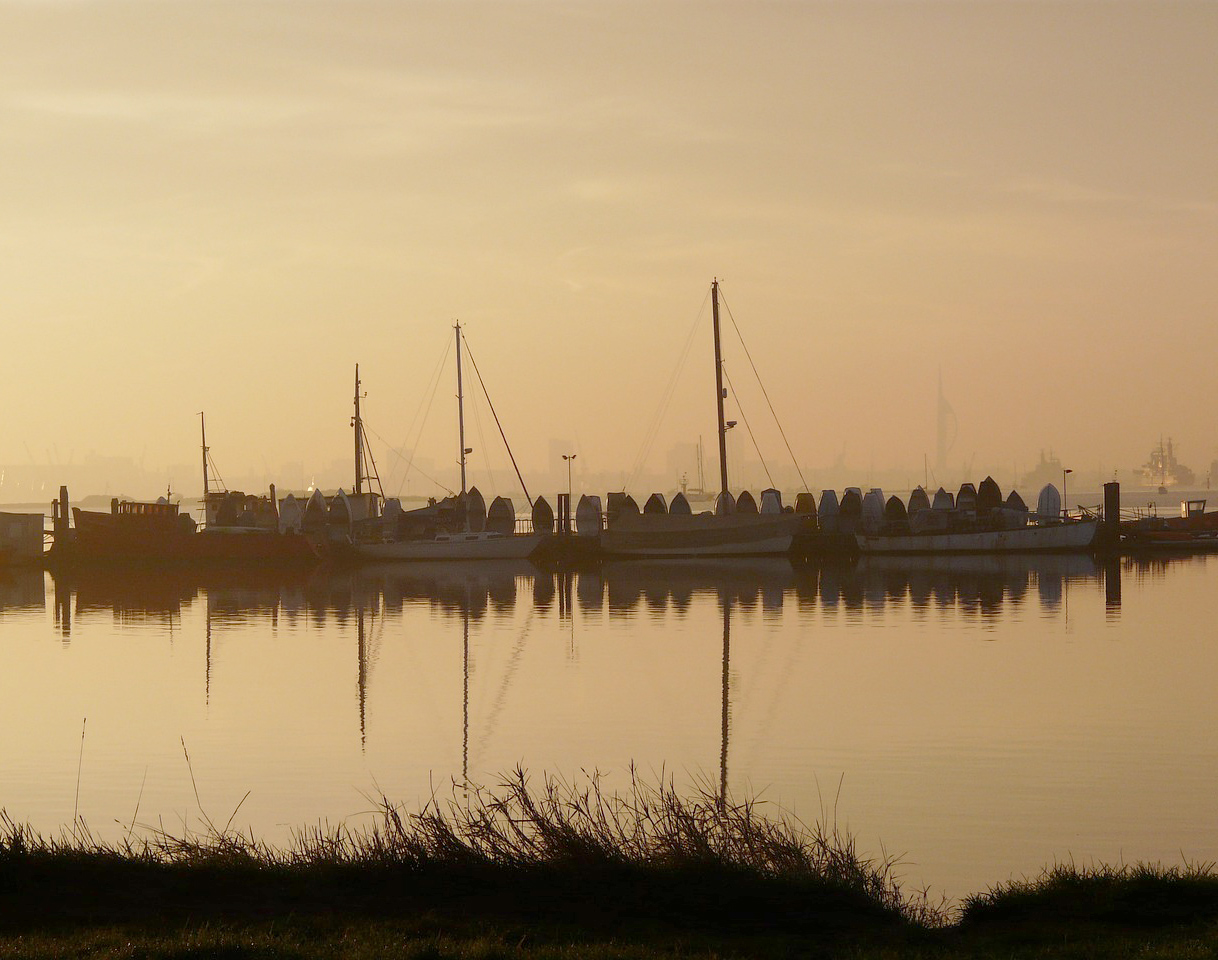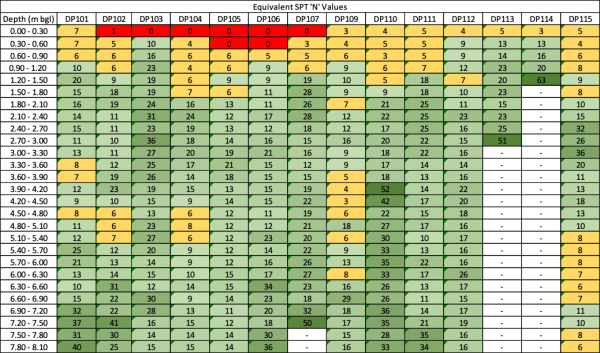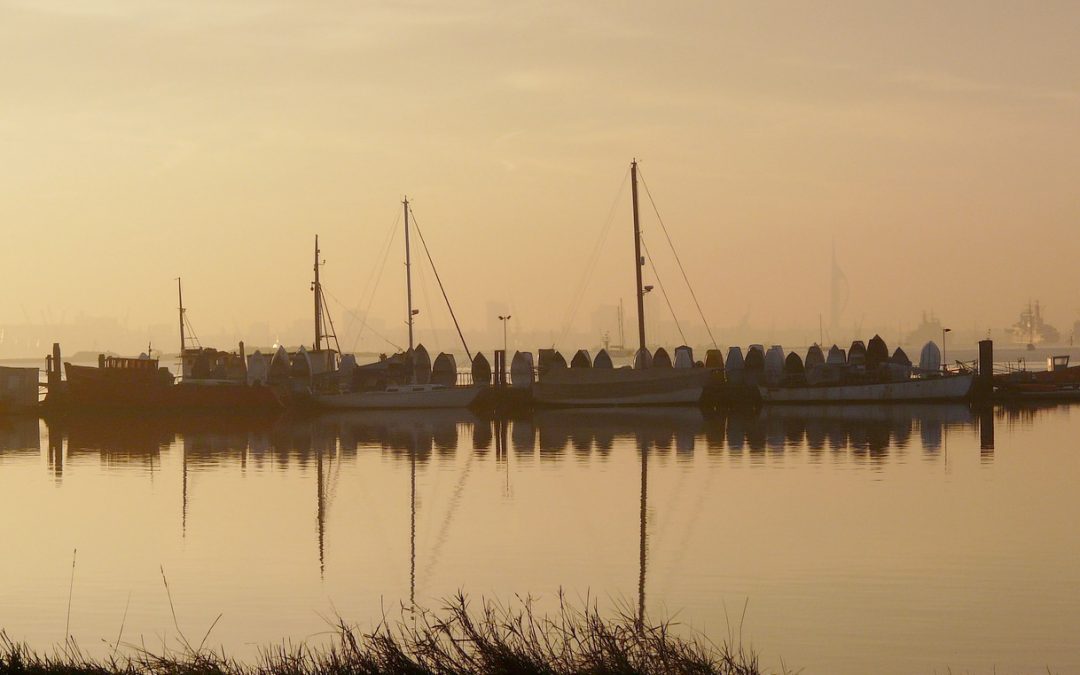Chalky Chalky Cheap Cheap
28th February 2024
Geotechnical • Specialist Services
Our Client

Preliminary-Assessment
The previous site investigation works comprised five Windowless Sampler/Dynamic Probe locations as well as 26 trial pits, of which 24 also had soakage testing undertaken within them. The foundation solution recommended for the site comprised traditional strip footings with a range of depths and bearing capacities provided, between 1.00 – 2.50m bgl. It said an allowable bearing capacity of 120 – 150kN/m2 was achievable within both the River Terrace Deposits and Lewes Nodular Chalk Formation. It was recommended that foundations must be placed upon one strata and where the Lewes Nodular Chalk Formation was encountered, foundations must be placed on Grade Dc or structured chalk; despite none being recorded within the trial hole logs. Reinforcement was recommended within all foundations given the variability in the weathering profile of the chalk and thickness seen in the superficial capping deposits.
The report also referred to the potential for ‘solution features’ on-site and within the surrounding area. It recommended that surface water disposal should not be undertaken near these areas, however the exact location(s) they referred to as a ‘solution feature’ was not clear or defined.
The findings of the previous site investigation identified one soft spot on-site however due to only five strength profiles being available to a depth of 5.00m bgl, this required further investigation.
Our Challenge
From here our challenge was to confirm the risk from chalk dissolution features, provide detailed assessments of bearing capacities to inform foundation design and to confirm the geotechnical properties of the soils on the site.
The Ground & Water Approach
- A review of the desk-based information to classify the likelihood of chalk mining and dissolution features at the site.
- Increase the density of strength profiles across the site in order to understand the competency of the chalk to a depth of 8.00m bgl.
- Undertake trial pitting adjacent to probing locations to examine the superficial deposits on-site and to obtain samples of the underlying chalk on-site for inspection/logging and additional geotechnical tests.
Addressing point one, Ground & Water undertook a detailed Chalk Mining & Dissolution Risk assessment in order to quantify what risk the geological setting of the site posed from a dissolution perspective. As a result of the desk-based review of the site it was considered that a very low risk of dissolution was present on-site. No significant areas of concern were noted across the proposed site and the wider site environs. Targeted additional strength data was to focus around the previously identified soft spot whilst also ensuring good site coverage within the budget set by the client.
The Intrusive Site Works
The first round of intrusive site works comprised 15 Super Heavy Dynamic Probes to a target depth of 8.00m bgl and seven machine excavated trial pits to depths between 3.00 – 3.80m bgl. Samples collected were sent for geotechnical classification tests.
The findings of the intrusive rounds of site investigation confirmed the very low risk of dissolution on-site. The chalk rockhead was considered to be relatively uniform across the site with a natural variation of between 1.05 – 3.80m bgl. The chalk was noted to be Grade Dm structureless weathered chalk, across the site to the base of the trial holes encountered. The chalk soils were generally noted to be competent across the site with a small area of soft soils noted on-site within DP115/5.10 – >8.10m bgl. It was recommended that further works are undertaken surrounding this area in order to determine the extents of the softer soils on-site.

The Outcome
- A confirmed very low risk of dissolution features on-site.
- A detailed assessment of allowable bearing capacities at each of the probing locations with specific localised depths. The additional strength profiles confirmed the competency of the soils underlying the site, as such this enabled shallow foundations to be placed within both the superficial deposits on-site, and also the Grade Dm chalk.
- Confirmation of the geotechnical parameters of the soils on-site.
The additional confidence provided by the desk-based review and additional site works undertaken allowed our client to progress to the detailed design phase whilst removing conservative assumptions within the previously proposed foundation scheme for the site. Overall, the client’s decision to commission a second opinion saved it time and money.
